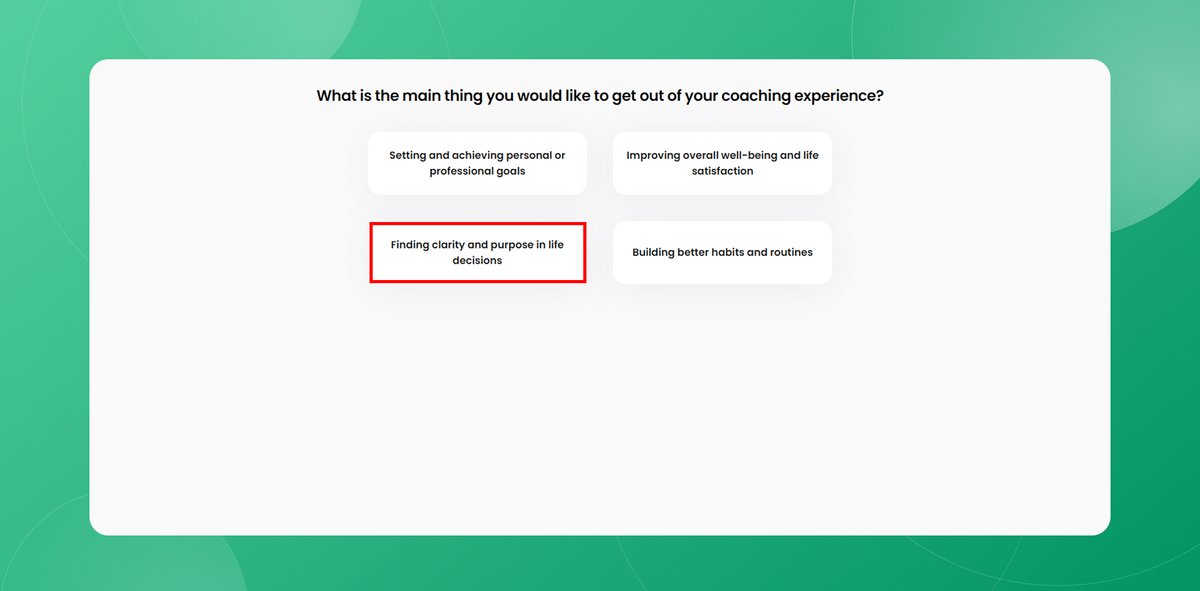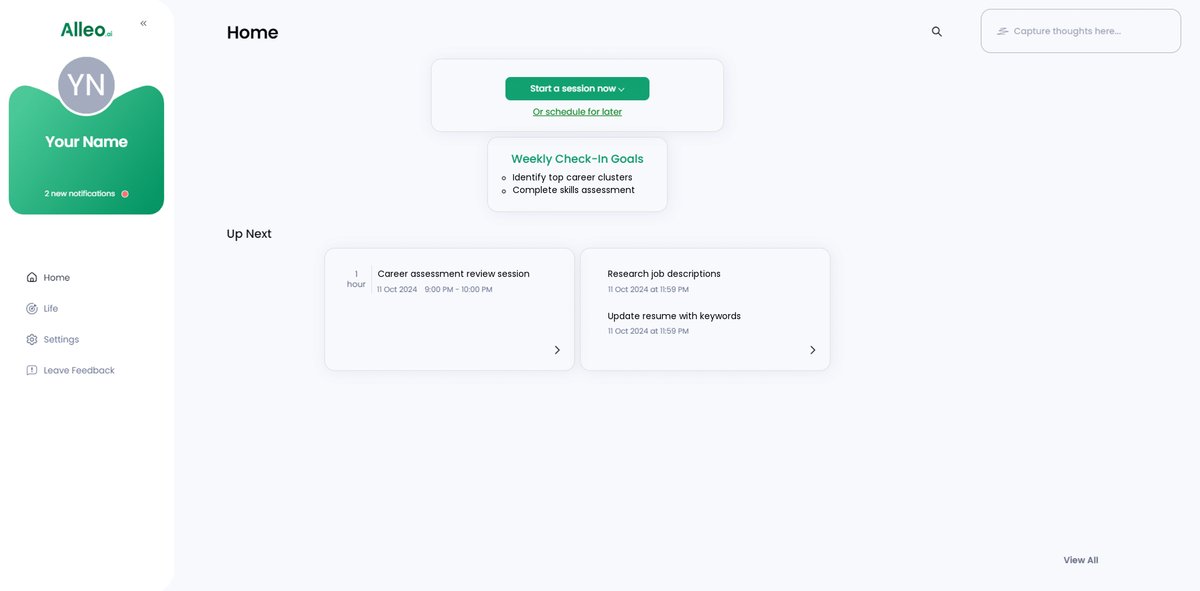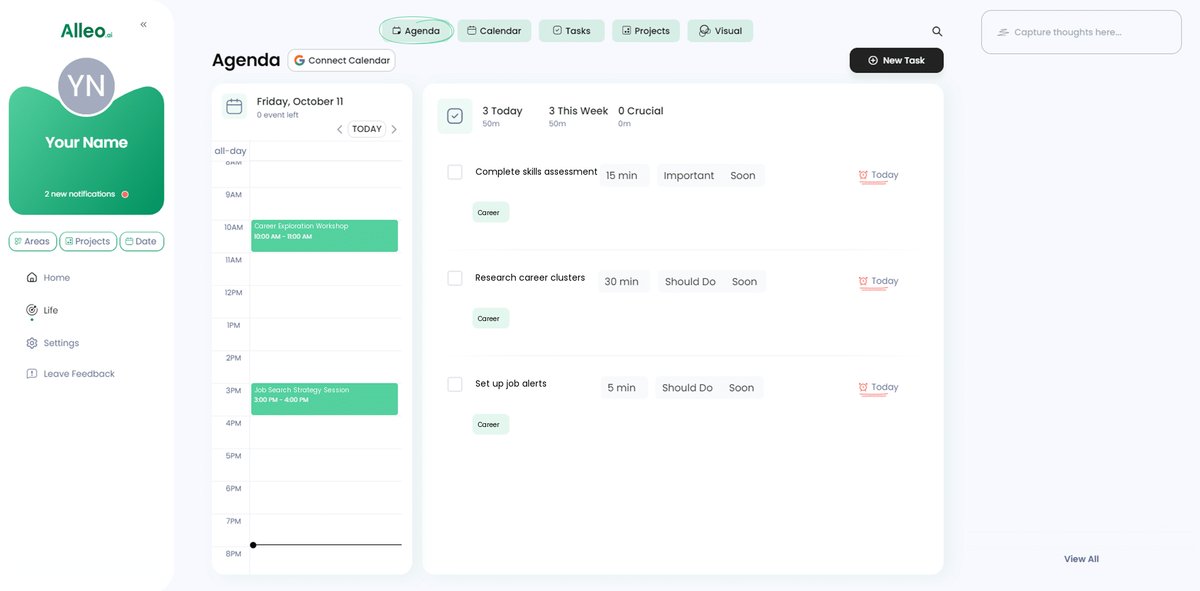7 Proven Techniques for Job Seekers to Narrow Down Career Options Effectively
Feeling overwhelmed by the vast array of career options and unsure how to narrow down your career options effectively?
As a life coach, I’ve helped many recent graduates navigate these exact challenges. I understand the confusion that comes with lack of professional experience and the need for career exploration techniques.
In this article, I’ll guide you through proven strategies to narrow down your career options. You’ll discover how to assess your interests using self-assessment tools for job seekers, explore career clusters, and use online resources for industry research strategies.
Let’s dive in to explore skills inventory for career decisions and work values assessment techniques.

Understanding the Overwhelm: The Job Market Conundrum
Navigating the job market as a recent graduate can feel like an endless maze. With countless options and no clear direction, it’s easy to feel lost when trying to narrow down career options.
Many clients initially struggle with identifying where their degree fits in the professional world. The lack of professional experience often exacerbates this confusion, making career exploration techniques crucial.
In my experience, people often find the job search process daunting, especially when they lack a clear strategy. Without a structured approach, such as using self-assessment tools for job seekers, the multitude of career paths can be overwhelming.
It’s crucial to have a clear strategy to navigate your career options effectively, which may include industry research strategies and informational interviews.

Roadmap to Narrowing Your Career Options
Overcoming this challenge requires a few key steps. Here are the main areas to focus on to narrow down career options and make progress:
- Self-assess interests, values, and skills: Identify your strengths and what matters most in a career using self-assessment tools for job seekers.
- Explore career clusters aligned with your major: Research relevant career clusters and match them to your field of study as part of your career exploration techniques.
- Use online assessment tools for career insights: Utilize tools like the Occupational Outlook Handbook to understand industry demands and job market trends analysis.
- Conduct informational interviews with professionals: Gain insights by talking to professionals in your desired fields through networking for career guidance.
- Gain experience through internships or job shadowing: Apply for internships or request job shadowing opportunities to narrow down career options.
- Research job descriptions and required skillsets: Analyze job postings to identify needed skills and qualifications using industry research strategies.
- Create a targeted job search strategy with keywords: Tailor your resume and cover letter using industry-specific keywords as part of your professional development planning.
Let’s dive in!
1: Self-assess interests, values, and skills
Understanding your interests, values, and skills is crucial for narrowing down career options effectively.
Actionable Steps:
- Complete career assessments: Use self-assessment tools for job seekers like Focus2Career or CliftonStrengths to identify your strengths and passions.
- Reflect on personal values: Write down what matters most in a career, such as work-life balance, salary, and career growth using a work values assessment.
- List your skills and experiences: Create a detailed skills inventory for career decisions, including both technical and soft skills, and how they align with potential careers.
Explanation: These career exploration techniques matter because they help you narrow down career options that truly align with who you are. By understanding your strengths and values, you can make more informed career decisions.
For example, tools like the Enneagram can provide valuable insights into your personality and career fit.
Key benefits of self-assessment include:
- Increased self-awareness
- Better alignment with career choices
- Improved decision-making confidence
Take the time to delve into these career aptitude tests and reflections to gain clarity and direction as you narrow down career options.

2: Explore career clusters aligned with your major
Understanding how your major fits into different career clusters is key to narrow down career options and focus your job search.
Actionable Steps:
- Research career clusters: Utilize self-assessment tools for job seekers and resources from your university’s career center or online platforms like My Next Move to explore clusters related to your major.
- Match your major to career clusters: Identify which clusters are most relevant to your field of study and align with your interests and skills using career exploration techniques.
- Attend career fairs or industry seminars: Gain insights and network for career guidance with professionals in your chosen clusters to better understand career opportunities and job market trends.
Explanation: These steps help you discover potential career paths that closely align with your academic background and personal interests, aiding in your effort to narrow down career options.
By focusing on relevant career clusters and conducting industry research strategies, you can streamline your job search and make more informed decisions.
For example, resources like Boston College’s Career Center offer valuable information on career clusters and industry trends.
Take these steps to effectively explore career clusters and gain clarity on your future career path through skills inventory for career decisions and work values assessment.

3: Use online assessment tools for career insights
Utilizing online assessment tools can provide invaluable insights into potential career paths that align with your strengths and interests, helping you narrow down career options effectively.
Actionable Steps:
- Engage with tools: Use the Occupational Outlook Handbook to understand industry demands and job market trends analysis.
- Analyze assessment results: Compare your strengths, interests, and work values assessment outcomes with the results to identify fitting career paths.
- Seek feedback from career advisors: Discuss your career aptitude tests results with a coach to get personalized advice and direction for professional development planning.
Explanation: These career exploration techniques are crucial because they help you align your career choices with your personal strengths and industry trends.
By understanding where your skills inventory for career decisions meets market demands, you can make more informed decisions to narrow down career options. For instance, tools like the Holland Codes can offer detailed insights into suitable career paths based on your personality and preferences.
Take these self-assessment tools for job seekers seriously to gain clarity and direction in your job search.

4: Conduct informational interviews with professionals
Conducting informational interviews with professionals in your desired fields can provide invaluable insights and guidance to help narrow down career options.
Actionable Steps:
- Identify potential interviewees: Use LinkedIn to find professionals who work in roles or industries you’re interested in as part of your career exploration techniques.
- Prepare insightful questions: Focus on understanding the day-to-day responsibilities, challenges, and required skills for the roles you’re exploring, akin to conducting a skills inventory for career decisions.
- Follow up and build relationships: Send thank-you notes after each interview and stay in touch for future networking for career guidance opportunities.
Explanation: These steps matter because they allow you to gain first-hand insights into various careers and build a professional network.
Informational interviews can help you understand the realities of different roles and industries, which is crucial for making informed career decisions and to narrow down career options effectively.
For example, the Coursera article emphasizes the importance of informational interviews in gathering industry insights and expanding your network.
Key benefits of informational interviews:
- Gain insider knowledge of industries and job market trends analysis
- Expand professional network
- Clarify career goals and expectations, similar to using work values assessment tools
By taking these steps, you’ll be better equipped to decide which career paths align with your interests and goals, effectively helping you narrow down career options.

5: Gain experience through internships or job shadowing
Gaining hands-on experience through internships or job shadowing is essential for understanding the practical aspects of your desired career and can help narrow down career options.
Actionable Steps:
- Apply for internships: Search for internships on job boards like Indeed or LinkedIn. Focus on roles that align with your career interests and utilize career exploration techniques.
- Request job shadowing opportunities: Reach out to professionals in your network to shadow them for a day and observe their work environment, which can serve as an effective industry research strategy.
- Volunteer in related fields: Find volunteer opportunities in roles connected to your career interests to build experience, enhance your resume, and conduct a skills inventory for career decisions.
Explanation: These steps matter because they provide practical insights and real-world experience, which are crucial for making informed career decisions and helping to narrow down career options.
For example, internships can help you understand industry-specific demands and expectations, aiding in your career exploration process.
According to a Coursera article, hands-on experience can significantly boost your employability and confidence in your chosen field, which is vital when trying to narrow down career options.
Taking these steps will help you gain valuable experience and make more informed decisions about your career path, effectively utilizing career exploration techniques and professional development planning.

6: Research job descriptions and required skillsets
Understanding job descriptions and the required skillsets is essential for aligning your qualifications with industry demands and can help you narrow down career options effectively.
Actionable Steps:
- Analyze job postings: Review job descriptions on platforms like LinkedIn to identify the skills and qualifications commonly required in your desired roles, which is a key career exploration technique.
- Identify skill gaps: Compare the skills listed in job postings with your current skillset to spot areas for improvement, using skills inventory for career decisions.
- Enroll in relevant courses: Take online courses or workshops to develop the skills needed for your desired roles, aiding in professional development planning.
Explanation: These steps matter because they help you understand the specific qualifications employers are seeking, allowing you to tailor your job applications effectively and narrow down career options.
For instance, understanding job descriptions can help you identify skill gaps and address them through targeted learning, which is crucial in career exploration techniques.
According to a Coursera article, aligning your skills with industry demands can significantly boost your employability.
Key skills to focus on:
- Technical proficiencies
- Soft skills (communication, teamwork)
- Industry-specific knowledge
Taking these steps will help you be better prepared and confident in your job search as you narrow down career options.

7: Create a targeted job search strategy with keywords
Creating a targeted job search strategy with keywords is essential for focusing your job applications and standing out to employers, helping you narrow down career options effectively.
Actionable Steps:
- Use strategic keywords: Tailor your resume and cover letter with industry-specific keywords to highlight your qualifications and aid in career exploration techniques.
- Set up job alerts: Use platforms like LinkedIn to set up daily job alerts for relevant positions that match your skills and interests, utilizing industry research strategies.
- Apply to jobs in batches: Send out applications in batches to manage responses and follow-ups effectively, incorporating skills inventory for career decisions.
Explanation: These steps matter because they help you focus your job search on roles that match your skills and interests, making your applications more relevant to employers and assisting in narrowing down career options.
For instance, according to LinkedIn advice, using strategic keywords and setting up job alerts can streamline your search process and improve your chances of landing the right job, which aligns with effective career exploration techniques.
By following these steps, you’ll be better positioned to find and secure a job that aligns with your career goals, leveraging self-assessment tools for job seekers and work values assessment in your decision-making process.

Partner with Alleo in Your Career Journey
We’ve explored the challenges of narrowing down your career options, the benefits of solving them, and the steps to achieve it. But did you know you can work directly with Alleo to make this journey easier and faster?
Setting up an account with Alleo is simple. Sign up for a free 14-day trial—no credit card required. Our career exploration techniques can help you narrow down career options effectively.
Alleo’s AI coach helps you set specific career goals and track your progress. The coach provides personalized career planning, with regular follow-ups via text and push notifications. Our self-assessment tools for job seekers assist in creating a comprehensive skills inventory for career decisions.
This ensures you stay on track and make informed choices as you narrow down career options.
Ready to get started for free? Let me show you how to use our work values assessment and career aptitude tests to guide your professional development planning!
Step 1: Log In or Create Your Account
To begin your personalized career journey, log in to your existing Alleo account or create a new one in just a few clicks, setting the foundation for tailored guidance and support.

Step 2: Choose Your Career Focus
Select “Finding clarity and purpose in life decisions” to align your career exploration with your personal goals and values, helping you narrow down your options and make more informed choices about your professional path.

Step 3: Selecting the life area you want to focus on
Choose the “Career” life area to target your job search efforts and align your AI coach’s guidance with your professional goals, helping you navigate the challenges of narrowing down career options as discussed in the article.

Step 4: Starting a coaching session
Begin your journey with Alleo by scheduling an intake session, where our AI coach will help you set up a personalized career plan tailored to your goals and interests identified in the article.

Step 5: Viewing and managing goals after the session
After your coaching session, check the app’s home page to view and manage the career goals you discussed, allowing you to track your progress and stay focused on your job search objectives.

Step 6: Adding events to your calendar or app
To track your progress in narrowing down your career options, use the app’s calendar and task features to schedule and monitor key activities like informational interviews, job application deadlines, and skill-building courses.

Your Path to Career Clarity Starts Here
Finding the right career as a recent graduate can feel overwhelming. But remember, you have the tools and strategies to narrow down career options and make it manageable.
By assessing your interests through self-assessment tools for job seekers, exploring career clusters, and using online career aptitude tests, you take the first steps toward clarity. Informational interviews and hands-on experience further refine your focus and help you narrow down career options.
Researching job descriptions, analyzing job market trends, and creating a targeted search strategy are crucial steps in career exploration techniques. They ensure you’re well-prepared and confident as you narrow down career options.
Don’t forget, Alleo is here to support you with industry research strategies and professional development planning. Set up your free trial to get personalized guidance and stay on track.
Your future career awaits. Dive in and take the first step to narrow down career options today!